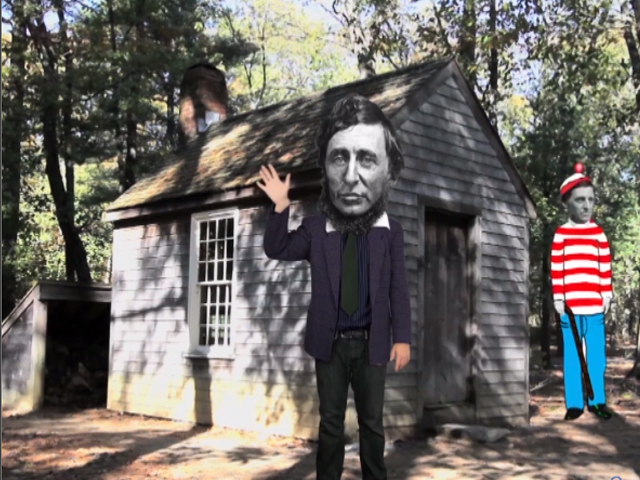Where It All Goes Down
Walden Pond, near Concord, Massachusetts, 1845-1847
Field Trip
Walden chronicles the two years Thoreau spent at Walden Pond, a rural area located just outside of Concord, Massachusetts. If you're lucky enough to live in the area, you should probably just head on over to check it out. It's actually been largely preserved thanks to conservation efforts inspired by the book. Because Thoreau is so detailed in his description of the physical setting around him (understatement of the century, we know), we won't try to top him. Instead, we'll focus on the historical setting of the book, something that Thoreau doesn't talk about as explicitly.
Thoreau was only at Walden Pond for two years (from 1845-1847), but the book went through extensive revisions before it was (finally) published in 1854. In that decade-ish, a lot of pretty important stuff went down in the United States. There are hints here and there in Walden indicating that Thoreau hadn't stopped thinking about the world when he left Walden Pond.
The Rebel
Remember how Thoreau got arrested in "The Village" chapter? Of course you do, it's the most action-packed part of the book. Remember what he got arrested for? Hmmm. Maybe not. Well, the brief arrest was for his refusal to pay a poll tax in protest of the US government. He elaborates on this experience in his famous essay "Civil Disobedience" (1849), where he justifies not paying the taxes by asserting that he doesn't know where his money would be going.
The Fugitive
Thoreau was strongly anti-slavery. Most notably, he objected to the government's Fugitive Slave Law, which stated that any fugitive slave discovered in the North had to be returned to the South. As it turns out, Thoreau's beloved state of Massachusetts was on his side. By 1843, Massachusetts had instituted a Personal Liberty Law. They tried to get around the federal government's initial law by prohibiting any Massachusetts official from assisting in the capture of a fugitive slave. So what does any of this have to do with Walden?
Well, slavery, as we know (if we were paying attention in history class), was quite a problem in the mid-19th century. Thoreau actually viewed the Mexican-American War of 1845-1848 as an attempt by the United States to acquire more territories which – being in the South – would become slave-holding states. So – and we promise we're getting to the point – Thoreau's decision to retreat into Walden Pond may be viewed in part as a response to the expansionist policies of the government.
Everyone's A Critic, Especially Thoreau
Thoreau was also concerned about the pace of industrialization in 19th-century America. Aren't we all? But really, a lot of stuff was going on at this time that would totally change the face of America: the spread of the railroad, the development of the Transatlantic Telegraph, urbanization, and an increase in industrial capacity (in industries such as the textile industry). Some people saw these developments as signs of progress and modernity, but Thoreau, always the contrarian, worried about the excessive commercialization and materialism of society. Simply put, everyone was too worried about making money and too dazzled by technological innovation to stop and think about their moral well-being. (If you want the more detailed version of what was happening in society, check out Shmoop's history guide to the Antebellum Period.)
In Walden, Thoreau describes a rural world where all of these signs of modernity are present, but not the center of attention. The star of the show is the individual and his personal quest to answer some of the big questions about the meaning of life.
